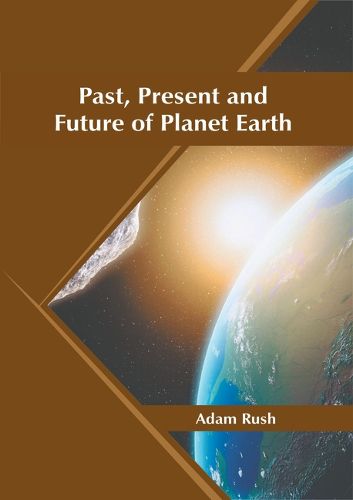Readings Newsletter
Become a Readings Member to make your shopping experience even easier.
Sign in or sign up for free!
You’re not far away from qualifying for FREE standard shipping within Australia
You’ve qualified for FREE standard shipping within Australia
The cart is loading…






The history of Earth spans approximately 4.5 billion years. The earliest known evidence of life dates back to around 3.5 billion years, with the appearance of simple, single-celled organisms known as prokaryotes. Throughout its history, Earth has undergone significant geological and climatic changes, shaping the planet's surface and life forms in a continuous process of evolution. Presently, Earth is home to diverse ecosystems and human civilizations. The present age is called the Anthropocene which suggests that human actions have become a dominant force influencing the Earth's systems, to the extent that they leave a lasting and identifiable mark on the planet's geological record. Looking to the future, advances in technology and a collective commitment to sustainability could help mitigate the impacts of climate change and ensure a habitable Earth for future generations. This book is a valuable compilation of topics, ranging from the basic to the most complex theories and principles in the field of Earth sciences. It explores all the important aspects of this field in the present day scenario. This textbook will serve as a reference to a broad spectrum of readers.
$9.00 standard shipping within Australia
FREE standard shipping within Australia for orders over $100.00
Express & International shipping calculated at checkout
The history of Earth spans approximately 4.5 billion years. The earliest known evidence of life dates back to around 3.5 billion years, with the appearance of simple, single-celled organisms known as prokaryotes. Throughout its history, Earth has undergone significant geological and climatic changes, shaping the planet's surface and life forms in a continuous process of evolution. Presently, Earth is home to diverse ecosystems and human civilizations. The present age is called the Anthropocene which suggests that human actions have become a dominant force influencing the Earth's systems, to the extent that they leave a lasting and identifiable mark on the planet's geological record. Looking to the future, advances in technology and a collective commitment to sustainability could help mitigate the impacts of climate change and ensure a habitable Earth for future generations. This book is a valuable compilation of topics, ranging from the basic to the most complex theories and principles in the field of Earth sciences. It explores all the important aspects of this field in the present day scenario. This textbook will serve as a reference to a broad spectrum of readers.